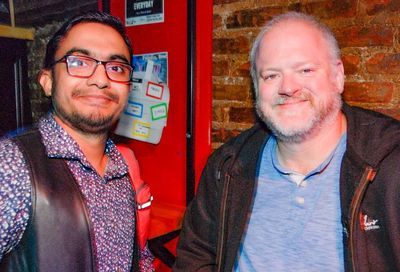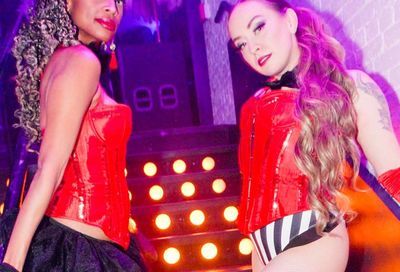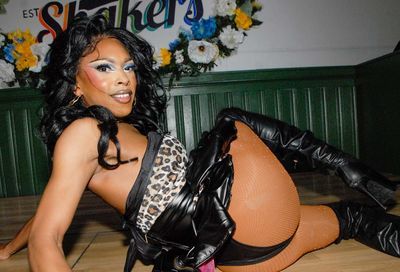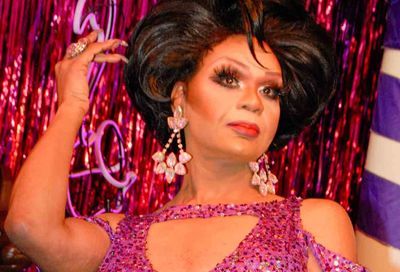Twice as Good
America is at a cultural, social crossroads demanding a re-examination of privilege
Feb. 5 would have been Trayvon Martin’s 19th birthday. Jordan Davis would have turned 19 on Feb. 16. There are too many other cases like theirs, and they are not restricted to Florida. To be young and black in America is to be the target of an astonishing degree of savage, unearned hostility.
Unlike George Zimmerman, who was acquitted after killing Martin, Michael Dunn at least was convicted for shooting up an SUV full of black teens. But saying he saw Davis with a gun was apparently enough to dodge the murder one count, though Davis had no gun. Does anyone think jurors would have bought the story had the races been reversed?
Another example of “fear goggles,” as Jessica Williams of The Daily Show dubs the racial lens of “chronically terrified white people,” was the reaction when Richard Sherman of the Seattle Seahawks offered up some adrenaline-fueled trash talk to Fox’s Erin Andrews after the NFC championship game. As Mark Thompson noted on Sirius/XM Progress talk radio, you’d have thought Sherman were King Kong and Andrews were Fay Wray.
When an All-Pro cornerback from the NFL’s best defensive squad needs to have his 3.9 GPA from Stanford cited to stop white people’s quivering, we have a problem. Though not fatal for Sherman as it was for Martin and Davis, it showed the same instant demonization, the same culturally assigned otherness.
Why is this an LGBT issue? For one thing, African-Americans have been among the most prominent out gay people in pro sports: Brittney Griner in the WNBA, Jason Collins in the NBA (who just signed with the Brooklyn Nets), Michael Sam before the NFL draft. All lacked the privilege taken for granted by white heterosexual men. Facing greater bias, they summoned greater strength. As the Scandal character Olivia Pope is told by her father in the TV drama, “You have to be twice as good as them to get half of what they have.” Many black overachievers grew up hearing this.
But it is not just that black and gay overlap. We must work together to defeat those who exploit fear and hatred to gain power. This requires refuting their lies repeatedly over time. The images of Sam’s athletic prowess are a powerful antidote and promise a historic moment come May.
For the past few years I have mentored a black gay youth from a troubled home who is now in college. Seeing his progress renews my hope in the difference that teaching and guidance can make. But there are many more like him. We nurture the next generation one life and one mind at a time. As in a Paul Laurence Dunbar poem about a father playing with his baby, we know we cannot always protect our young from the world. My mentee once told me, “I’m tougher than I look.” Thank goodness. He wants to succeed so he can help others.
If we only speak out when it’s our turn in the crosshairs, we do the haters’ prep work. To defeat them, we must recognize our proper coalition partners, learn patience, and overcome our mutual resentments. We have to make a leap of trust. The alternative is to lose our country.
A youth stands before us who is no longer a child but not yet a man, armed with loud music or with Skittles and tea, wrapped despite himself in the garb of other people’s bogeymen. He started out, in Dunbar’s words, as a little brown baby with sparkling eyes. There is no greater treasure for parent or nation. His welfare is our mutual concern. We must reach past our differences to help him survive and thrive, lest that light and all its futures go out.
Richard J. Rosendall is a writer and activist. He can be reached at rrosendall@starpower.net.
Support Metro Weekly’s Journalism
These are challenging times for news organizations. And yet it’s crucial we stay active and provide vital resources and information to both our local readers and the world. So won’t you please take a moment and consider supporting Metro Weekly with a membership? For as little as $5 a month, you can help ensure Metro Weekly magazine and MetroWeekly.com remain free, viable resources as we provide the best, most diverse, culturally-resonant LGBTQ coverage in both the D.C. region and around the world. Memberships come with exclusive perks and discounts, your own personal digital delivery of each week’s magazine (and an archive), access to our Member's Lounge when it launches this fall, and exclusive members-only items like Metro Weekly Membership Mugs and Tote Bags! Check out all our membership levels here and please join us today!




















